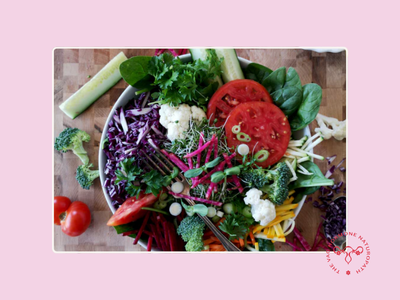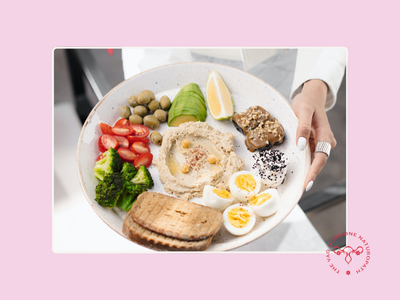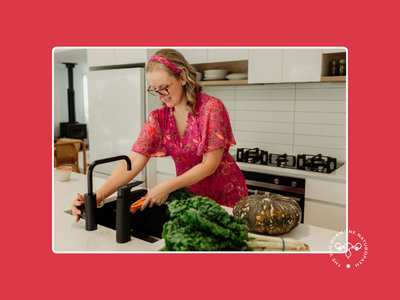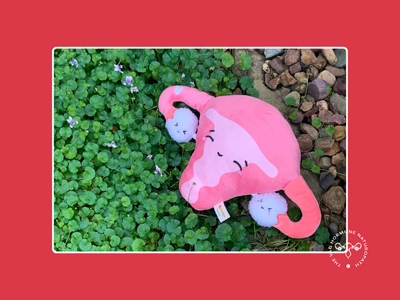· Diet · 3 min read
How Food Affects Vaginal + Hormonal Health - what the most recent research says
Emerging research links diet and vaginal microbiome balance. Learn which foods may support vaginal + hormonal health, and where to begin for personalised care.

A few years ago, vaginal symptoms felt personal. Like “something’s wrong with me”. Today, the language of microbiome, metabolites, and hormonal interplay is shifting the conversation. Emerging science is showing that what lands in the plate matters — not just for gut health, but for vaginal and hormonal resilience too.
In this post, we’ll explore what recent research reveals about diet, microbiome, and hormone interplay — and share practical food-based strategies (what to include, what to avoid) to support intimate wellness. The goal? To offer not fluff, but grounded, science-based steps that can shift the picture for good.
A link between diet and vaginal microbiome
A recent study in the academic journal Frontiers explored how dietary patterns influence the vaginal environment. Researchers found that higher intake of animal protein was associated with a microbiome state that leans toward dysbiosis (less Lactobacillus dominance), while higher fibre and carbohydrate intake correlated with more favourable microbial profiles. While this might not be new for the gut microbiome, that this correlation was also found in the vagina is.
This matters, because Lactobacilli (especially L. crispatus) help maintain lower vaginal pH and protect against overgrowth of harmful bacteria.
Another study tracking daily fluctuations noted that intense exercise and vegetarian diets were associated with changes in microbial balance (including loss of Lactobacillus species) in some women.
Microbial shifts and hormone cycles
The MICYCLE study out of The University of Western Australia is actively investigating how changes in the vaginal microbiome map to reproductive hormones, diet, stress, and behaviour across the menstrual cycle.
This integration of hormones + microbes is critical: as oestrogen shifts, glycogen production in vaginal epithelial cells changes — and that impacts which bacteria get fed. When microbial balance is fragile, minor diet or lifestyle changes can push the ecosystem off balance.
Food isn’t a magic bullet but it is a good foundation
It’s important to note: food alone rarely “fixes” recurring symptoms — but it changes the terrain. Think of it as tending soil before planting. When the internal environment is more hospitable, therapeutic interventions (testing, personalised protocols, emotional safety) have more chance to succeed.
Emerging research is beginning to illustrate this synergy between diet + microbiome + hormones.
There’s no one-size-fits-all; individual variations in genetics, past antibiotic use, stress and hormone patterns shift how each body responds.
Practical food-first steps to try this month
- Add a fibre “Rainbow”
- Choose vegetables/legumes/fruits of different colours each day — aim for 25 g+ fibre as a target.
- Swap in a serving of fermented food
- Try a tablespoon of sauerkraut or plain live-culture yoghurt with your meal.
- Introduce one plant-based omega-3 boost
- Add a teaspoon of ground flaxseed or handful of walnuts to breakfast.
- Limit high-processed meats and cut back on refined carbs
- Use moderation, not elimination, especially when symptoms are stable.
- Monitor and journal
- Track how changes feel (digestive comfort, vaginal sensations, mood) — patterns emerge over weeks.
An invitation for clarity
If these shifts feel supportive but the same symptoms persist — it may be time for deeper insight. The Vag Hormone Assessment offers an opportunity to discuss how my approach can support through:
- Advanced hormone + microbial testing
- Personalised protocols (beyond “one-size-fits-all”)
- Space for emotional & lifestyle patterns to be held — not brushed over
When diet is aligned with care, it compounds the possibility of change.
To book your confidential chat with me so we can see what the next steps are for you, just go to https://bit.ly/BookWithAlison and book today.




